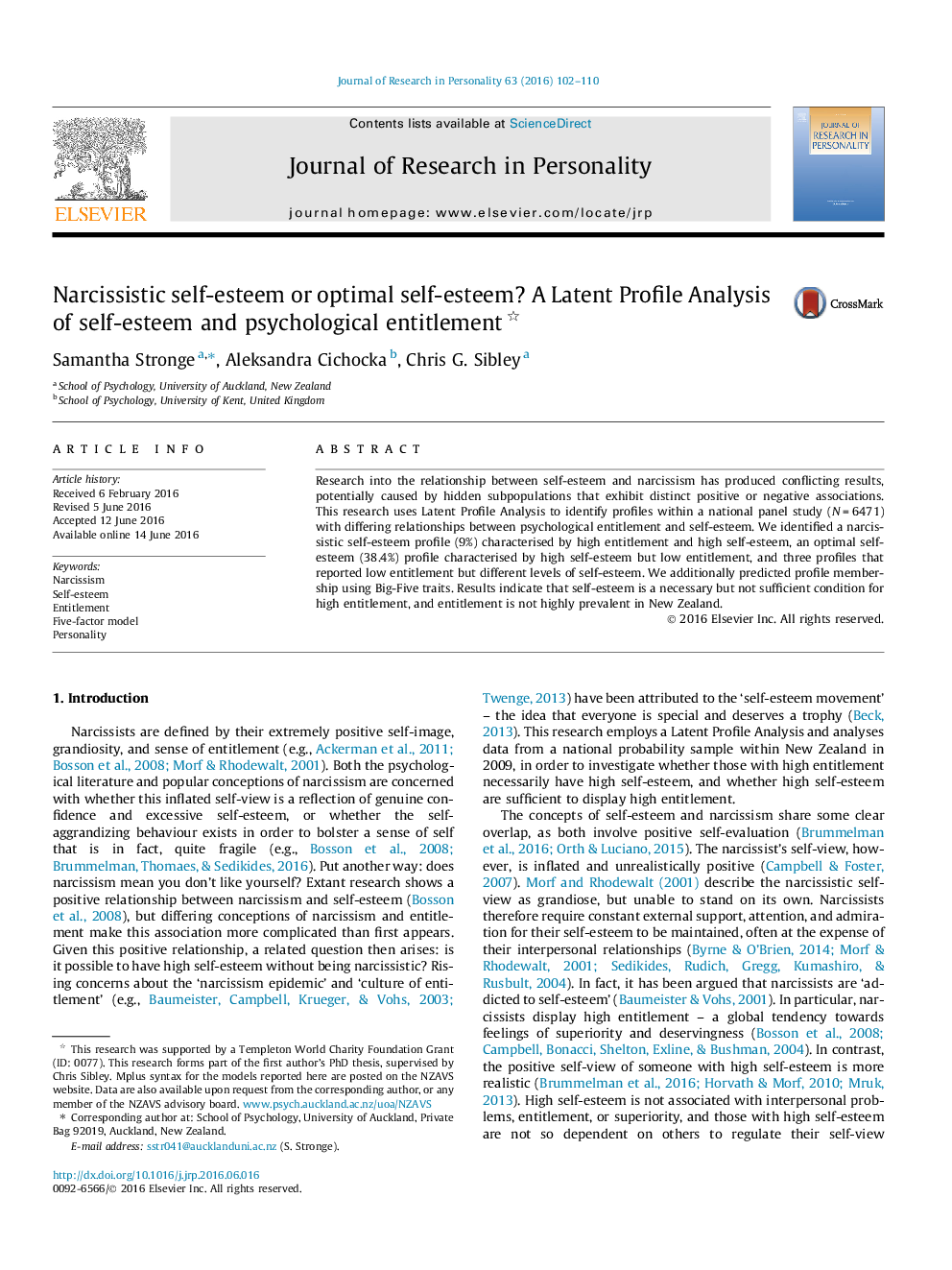| Article ID | Journal | Published Year | Pages | File Type |
|---|---|---|---|---|
| 951224 | Journal of Research in Personality | 2016 | 9 Pages |
•Identified profiles with different associations between self-esteem and entitlement.•High self-esteem is a necessary but not sufficient condition for high entitlement.•Two profiles had high self-esteem but one was high and one was low in entitlement.•No profile was found with high entitlement but low self-esteem.•Membership within profiles was predicted by age, gender, and personality.
Research into the relationship between self-esteem and narcissism has produced conflicting results, potentially caused by hidden subpopulations that exhibit distinct positive or negative associations. This research uses Latent Profile Analysis to identify profiles within a national panel study (N = 6471) with differing relationships between psychological entitlement and self-esteem. We identified a narcissistic self-esteem profile (9%) characterised by high entitlement and high self-esteem, an optimal self-esteem (38.4%) profile characterised by high self-esteem but low entitlement, and three profiles that reported low entitlement but different levels of self-esteem. We additionally predicted profile membership using Big-Five traits. Results indicate that self-esteem is a necessary but not sufficient condition for high entitlement, and entitlement is not highly prevalent in New Zealand.
